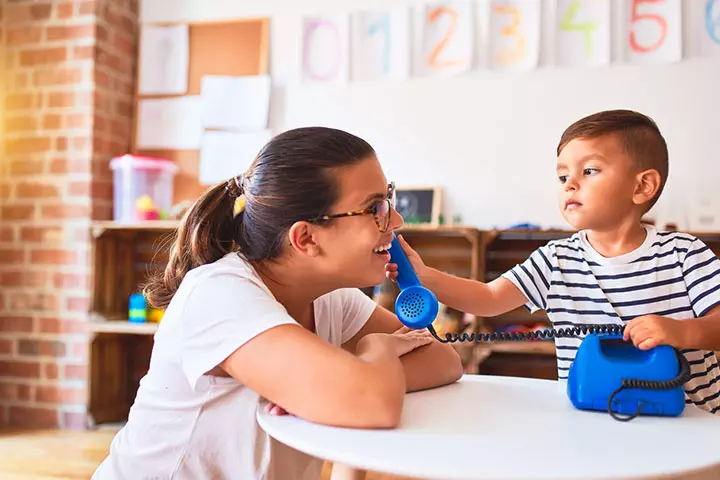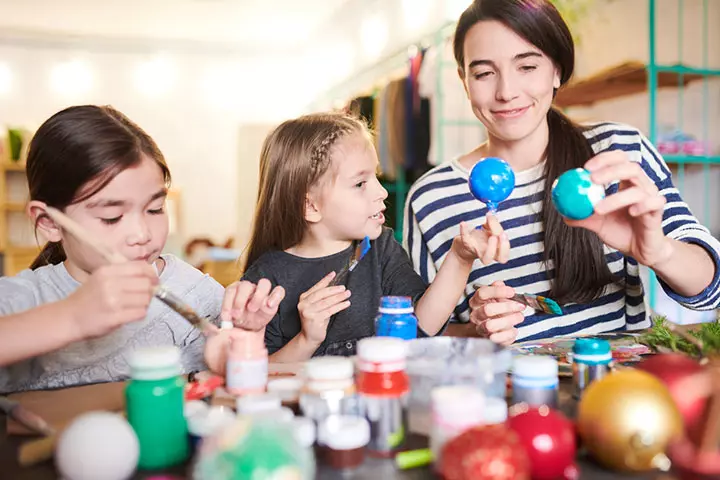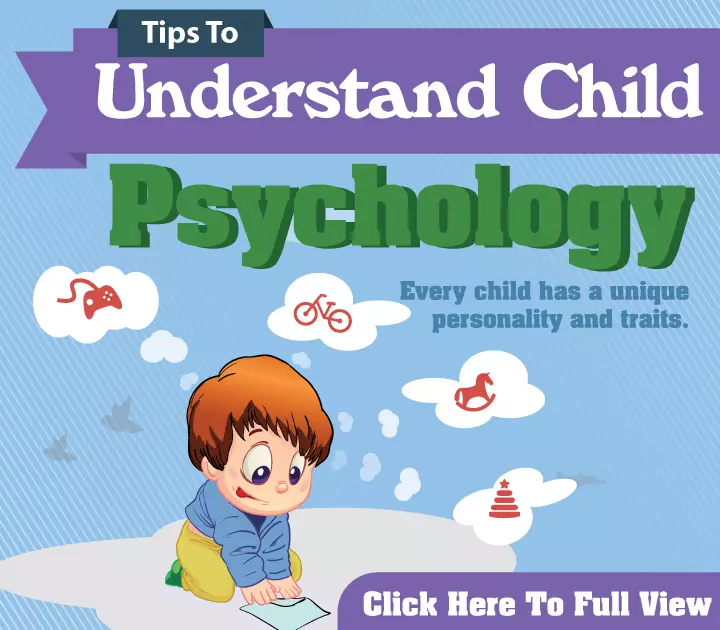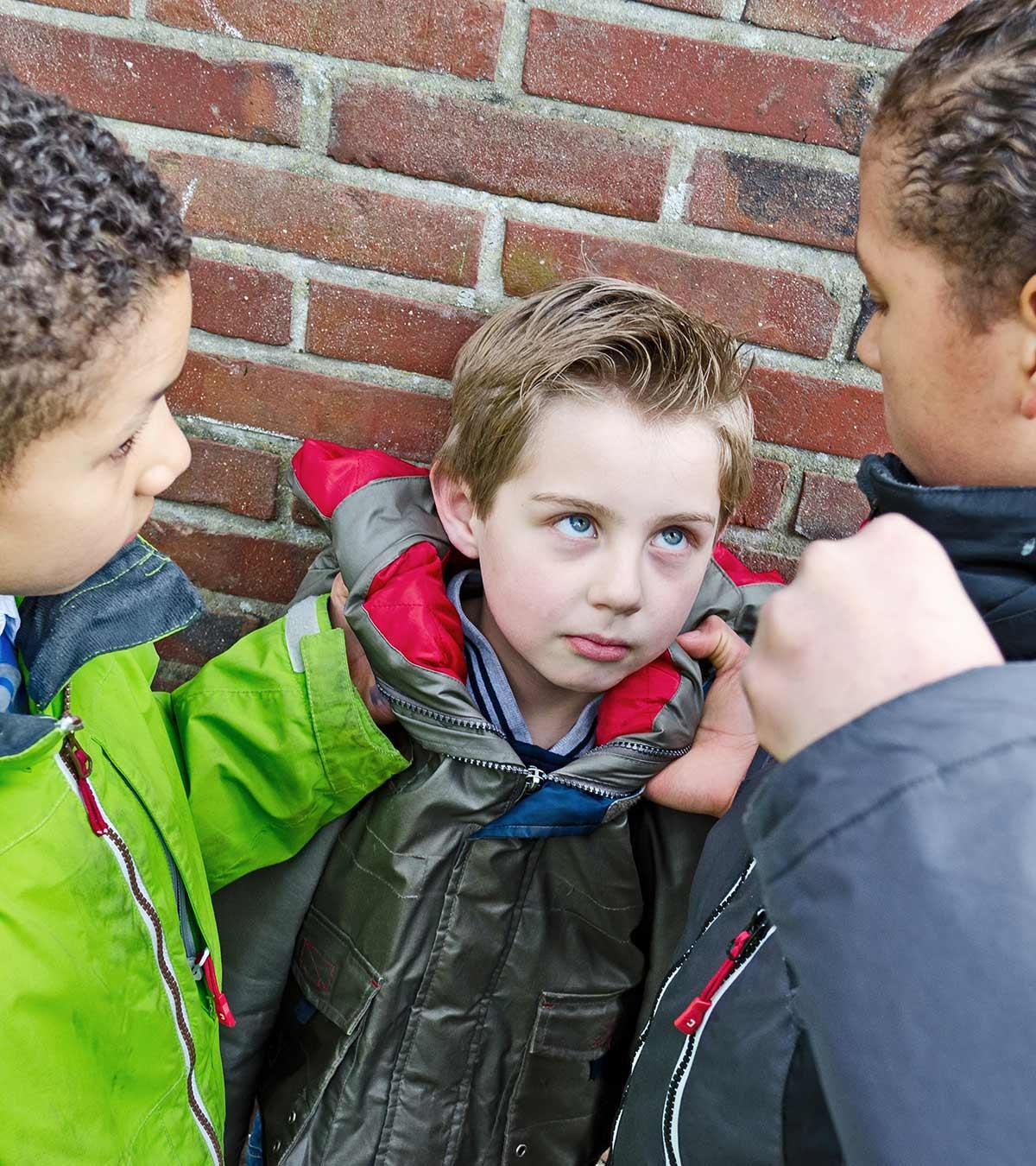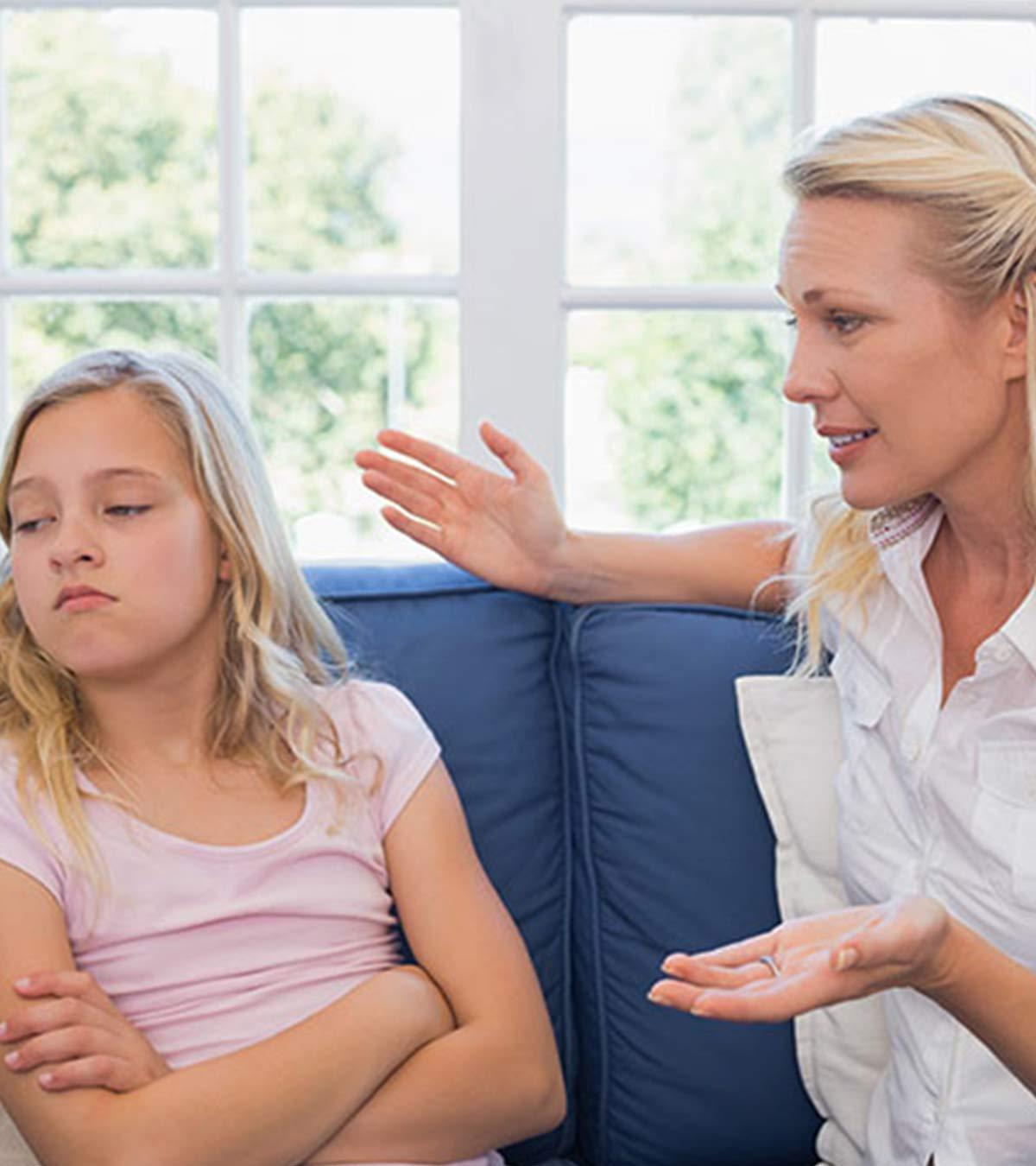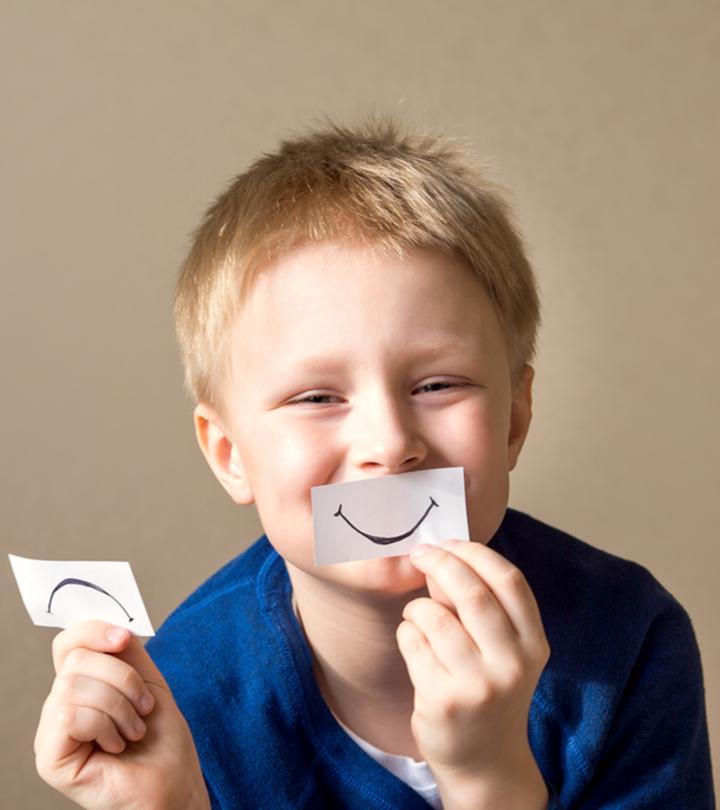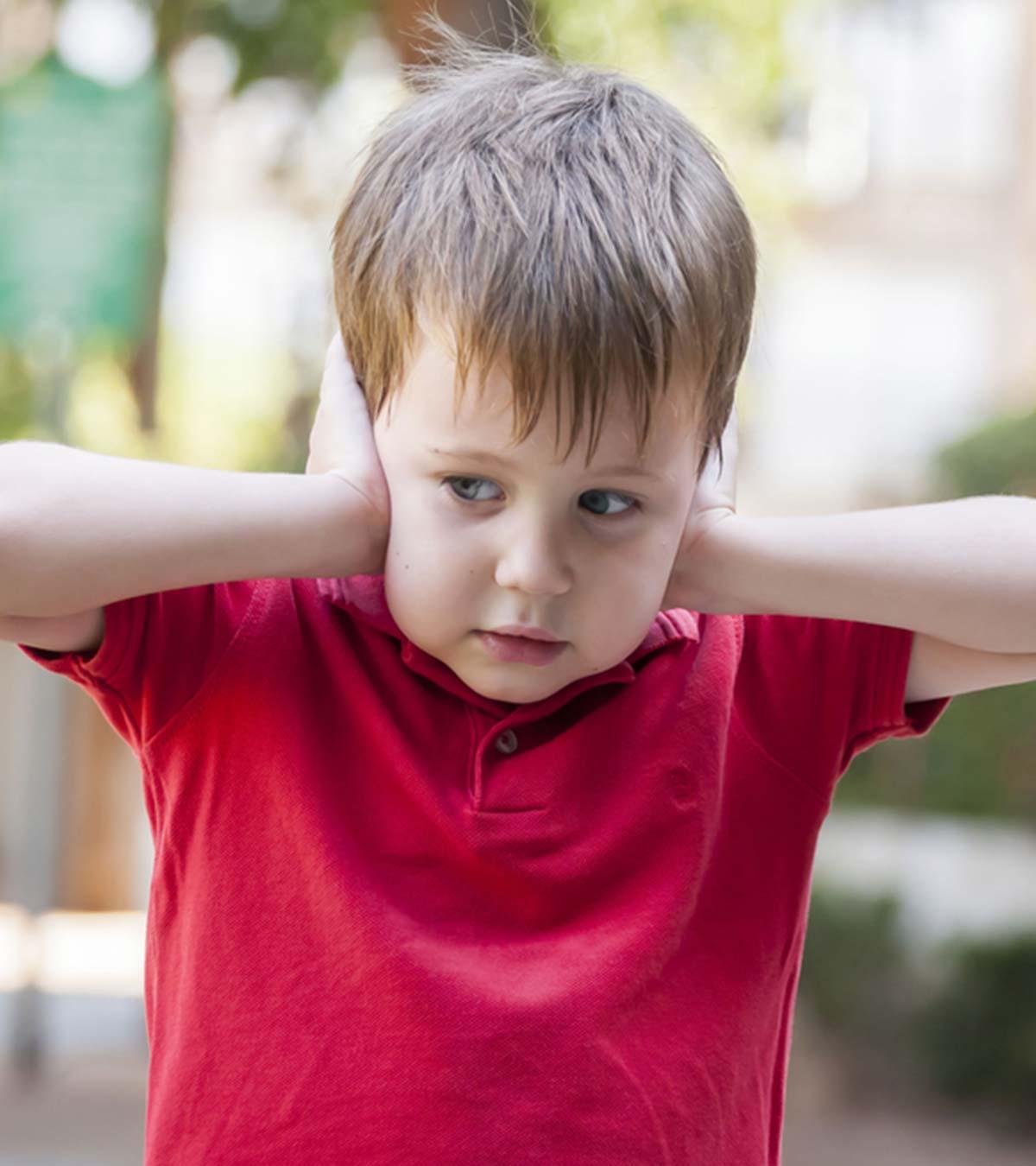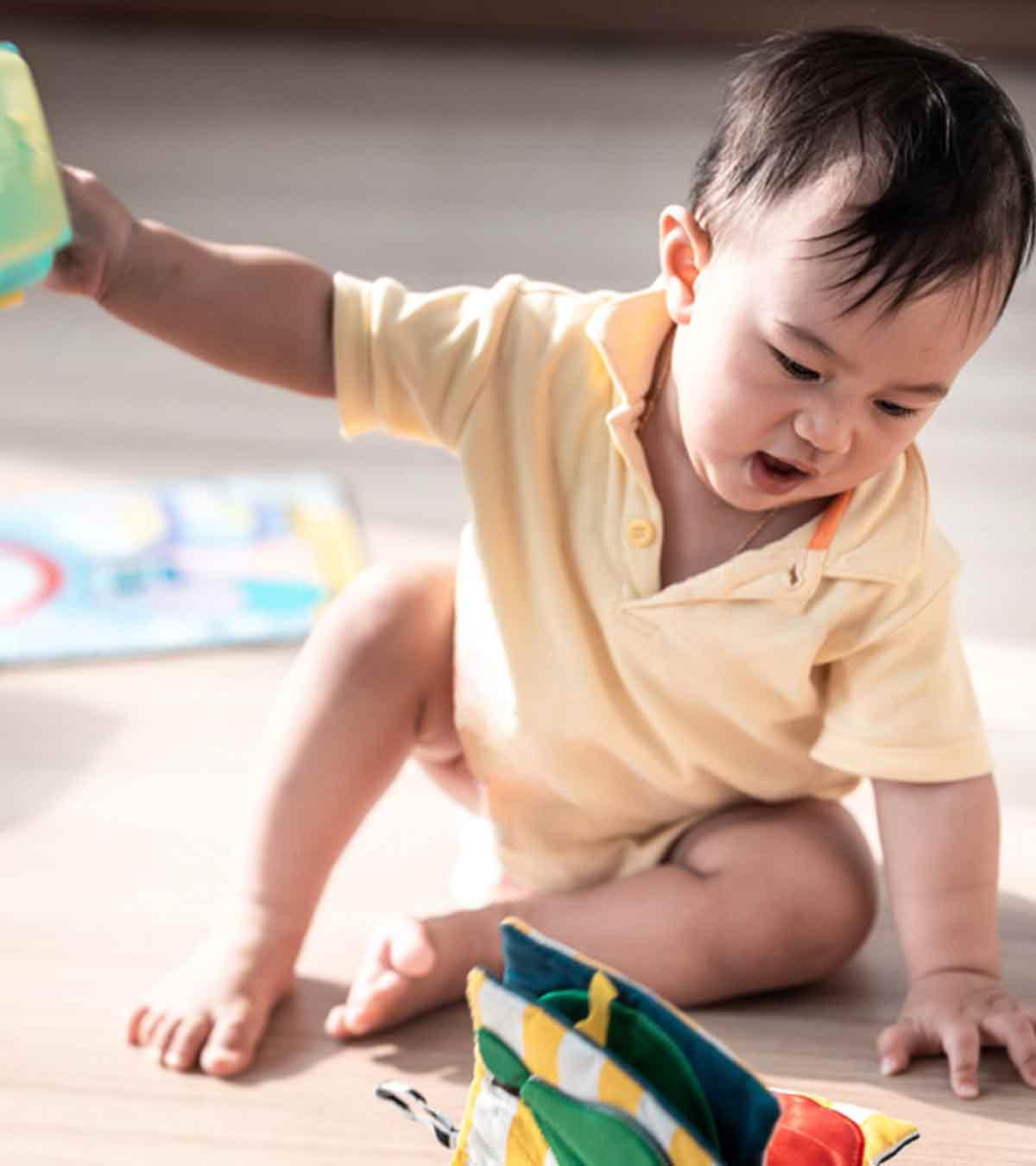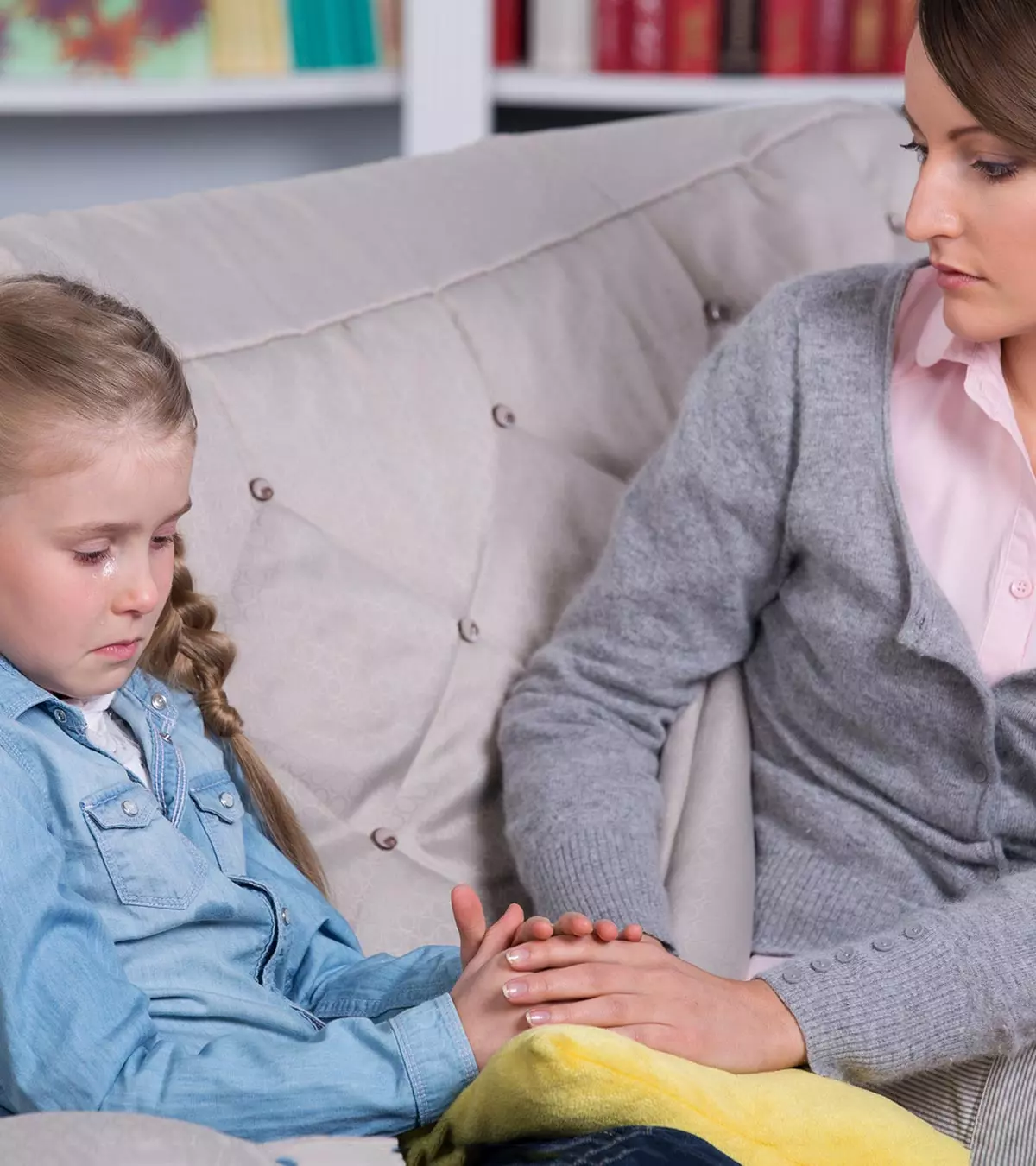
Image: Shutterstock
Parents have a great impact on a child’s emotional development. Decoding your child’s feelings and figuring out the meaning of their conduct is more important than judging their behavior. You do not require a degree in child psychology to understand what they wish to express but need to recognize the unique qualities they are born with. It is for you to identify what upsets your child and makes them happy. In this post, we explain emotional development in children and suggest a few tips to help you understand what’s going on in their minds.
Need For Understanding Your Child’s Experience
Parents often understandably look to answers to solve problems. But research shows that simply being curious about the meaning of your child’s behavior helps them to regulate their big emotions, think flexibly, and manage social situations. While you may sometimes not understand the meaning of your child’s behavior, simply wondering rather than misinterpreting and jumping to conclusions can be helpful. Parents play a key role in a child’s emotional development.
Some basic knowledge about emotional development can help parents contribute meaningfully towards the child’s emotional growth and stable mental health.
 Quick fact
Quick factTips To Understand Your Child’s Emotional Experience
Parenting is more than just providing comforts for your children. It is being there for the child emotionally, and providing them a sense of security. Here are a few basic child psychology tips that will help you understand children better:
1. Observation Is Key
Image: IStock
One of the simplest, yet most effective, ways to learn about your child’s experience is careful observation. Show interest in what your children are doing or saying. Observe their actions, expressions, and temperament. Keep in mind that each child is unique. Your child will be different from you and their siblings. Do ask yourself a few questions that can help you understand your child’s psychology.
- What does your child like to do the most?
- How do they react when they have to do something they do not like, such as eating certain foods, going to bed, or doing homework?
- How social are they? Are they willing to share or try new things?
- How long is your child taking to become familiar with their surroundings? Are they able to adjust to the changes in the environment?
While you answer these questions, remember not to judge the child. Just observe to be aware.
 Quick tip
Quick tip2. Spend ‘Quality’ Time With Your Children
Parents today are busy juggling work and home. Multi-tasking, as they call it, allows them to take care of many things at a time, one of the ‘things’ being the child. If you have been spending time with your kid in this fashion, it is time for a change. If you want to understand your children, you need to make time for them.
- Conversations with your children are an excellent way to develop communication skills and establish a deeper level of bonding with them based on trust and empathy. Through these conversations, you can know what’s happening in their life at school and home, what their favorite music or TV show is, and what gets them excited and what doesn’t.
- Quality time needn’t always mean talking or doing something together. Sometimes you can just sit together and silently observe them to gather some insights about their experience.
3. Children benefit from focused attention
Even if only for short periods of time, it can be helpful to focus your full attention on being with and listening to your child. You may spend lots of time with them while doing other tasks such as cooking dinner and driving them to school. This time is important too. But even 10 minutes of “special time” can go a long way towards creating a positive home environment and building your relationship with your child.
If possible, aim to have activities that allow you to spend time exclusively with each child. When you give undivided attention to your child they feel safe and validated and are more likely to open up to you.
4. Be Mindful of Your Child’s Environment
Image: Shutterstock
Research has shown that a child’s behavior and attitudes are shaped significantly by the environment in which they are raised (1). The home environment can affect a child’s brain development, language development, and cognitive and interpersonal skills. (2).
Your child’s behavior is influenced by the people that are around them and the quality of interactions. Take time to gauge the kind of ambiance that has been created at home and at school.
5. Have a basic knowledge of brain development
The brain grows in relationships. Some child development researchers refer to parents as “neuro architects.” When children interact with a caregiver who is focused on them, it helps connections between brain cells to grow. The brain is shaped by the experiences that the child has, and this in turn impacts how he responds to different situations.
Positive interactions can influence the brain’s growth to facilitate development in a healthy way. Conversely, adverse experiences such as an environment of constant fighting or emotional neglect can have a negative impact on the development of the brain. These experiences can lead to trauma and behavioral issues that can impact a child’s life in the long term, if left unaddressed. According to Daniel J. Siegel, author of The Whole-Brain Child: 12 Revolutionary Strategies to Nurture Your Child’s Developing Mind, you can help your children build a solid foundation for a healthy social and emotional life, and enable them to handle difficult situations, with a basic understanding of the brain’s functions.
6. Listen
Listening is important when you have a conversation with your child. You may initiate a conversation to get your child talking, but then make an effort to listen to what they are trying to say. Kids may not be able to express themselves clearly, which is why it is helpful to pay attention to the words that they use and their non-verbal cues as well.
Focus on:
- Tone, the way they stress a word or phrase.
- Expressions, which tell you how they feel. Try to gauge their emotions when they speak about something to understand if they like it, if they are afraid of it ,or if they are stressed about it.
- Body language, watch out for eye-contact, how they use their hands and the posture.
Not only should you listen, but also let your child know that they are being heard and taken seriously. Acknowledge what they say and respond to let them know that you are trying to understand what they say. If you don’t understand, ask questions for clarity. But be careful not to talk too much or ask too many questions, as that can shut communication off.
7. Children express emotions in different ways
Image: IStock
Besides talking, children express their feelings through activities.
- If your children love to draw, write, or act, encourage them to do that more often. Attending an art or painting classes can help them express themselves better. Your child may choose to keep a journal in which they can write about what they did on a given day and how they felt about it. The more your child writes or draws, the better they get at expressing themselves.
- Show interest in their artwork but take care not to over-interpret or you may end up displacing your emotions as theirs. If you misunderstand their work, take time to work through the misunderstanding.
- You may also consider play therapy, which utilizes play as a therapeutic tool for children to express themselves comfortably and communicate their emotions through toys without relying solely on verbal language.
8. Ask Questions that Encourage Communication
If you want your child to share their intentions, certain kinds of questions can help. Instead of asking “Do you like this song?”, which warrants either a ‘yes’ or a ‘no’, ask “What do you think about this song?”, which will offer an opening for your child to say more.
While you may not have an answer to questions your child raises, brushing away a child’s question as silly can discourage them from asking any questions in future.
9. Educate Yourself About Child Development
Image: Shutterstock
Some understanding of child development gathered from books or professionals can be useful. But always remember that you are the expert with regards to your child. A culture of excessive parenting advice can undermine a parent’s natural expertise.
10. Show Empathy
When you take your child’s feelings seriously while letting them know that you may not have the exact same feelings, you help them to take ownership of their emotional experience. For example, a toddler may have a meltdown because they cannot find their red sippy cup but must instead use the green one.
Their powerful feelings come from a sense of helplessness and frustration. While you do not have the same feelings and may think the difference is insignificant, taking their feelings seriously while setting limits on their behavior shows them that you have respect for their perspective.
A mother who goes by the name of Tano’s Mom on YouTube shares how she handles her son’s frustration and tantrums empathetically, using a technique called ‘Connect and Redirect,’ based on the ideas of Daniel Siegel (clinical psychologist). She states, “Empathetic facial expression and a soft tone of voice isn’t always easy, but it has been super-effective with my son (i).”
11. Understand your child’s temperament
Each child has a unique set of qualities and ways of interacting with the world. Some are more likely to be flexible while others are comfortable with routine. Some are cuddly while others are extremely sensitive to different forms of sensory input. Children have different ways of handling transitions and change. Starting from birth, taking time to notice your child’s particular way of being in the world can support their healthy development.
Take The Challenge
Understanding your child’s emotional development takes time and effort. If you have more than one child each one will be different. While having a consistent parenting style can be helpful and reassuring for all of your children, flexibility according to each individual child’s unique temperament is important. The time and care you take to understand your child’s emotional experience will serve to nurture them to develop into a healthy adult.
Click here to view an enlarged version of this infographic.
Frequently Asked Questions
1. What is meant by emotional development in children?
Emotional development in children helps them learn about different feelings, understand why they occur, recognize and relate them with their feelings, and develop effective methods to manage them (3).
2. What are the three stages of emotional development in children?
The three stages of emotional development in children are (4):
• Underdeveloped emotions: In babies between one and six months; the first stage of development where babies do not know about complex responses; they start showing primary responses to different situations.
• Personality development: In babies between six and 12 months; their personality begins to develop as they start recognizing their feelings; experience mixed emotions.
• Complex emotions: Between 18 and 24 months, children develop complex feelings, self-awareness, and diverse ways of self-expression. They also understand concepts of sharing and caring and respond to others’ emotions which will help enhance their socialization skills.
3. Why is emotional development important for a child?
Emotional development is essential for children because it helps them become self-confident and empathetic. They also know how to value themselves and those around them (5). Moreover, such children can foster more meaningful relationships with friends and family.
4. What activities can help me promote emotional development in my children?
Some activities that may help promote children’s emotional development are reading bedtime stories and discussing them, spending time with family, introducing feelings through puppet play, and maintaining a gratitude journal (6) (7). Exercising and relaxing through meditation may also be helpful.
5. How can an educator support a child’s emotional development?
An educator can support a child’s emotional development by reading and discussing children’s books, planning activities that involve sharing feelings and interpreting emotions, and limiting inappropriate expression (3) (8). Educators can also provide relevant feedback specific to the child’s personality and provide positive reinforcement through appreciation.
6. What emotional change commonly occurs during childhood?
Some common emotional changes experienced during childhood include frequent mood swings, craving for attention or privacy, sulking, short temper, and emotional outburst (9).
As parents, you must understand your child’s emotional attributes to figure out the reasons behind their conduct and facilitate healthy emotional development. Spend time with your child, be observant, listen to your child when they speak, educate yourself about the basics of a child’s brain development, and ensure a supportive environment for your child’s overall development. Keep in mind that not all children show their emotions alike, and your child may express their feelings differently. Invest time, encourage good communication, help them develop self-control and problem-solving skills through resilience, and be empathetic and patient in comprehending their emotions and temperament; this will further help you support them to develop into an emotionally stable individual.
Infographic: Psychology Tips To Understand Children’s Emotion
Parenting a child properly is important to nurture a better future and make them grow into good adults. Understanding a child’s emotions is one of the essential components of good parenting for better development. Check out the infographic below for a few tips to help you understand your child’s psychology.
Illustration: Momjunction Design Team
Key Pointers
- Understanding and decoding a child’s behavior, rather than judging them, is crucial for their emotional development.
- Adopt a curious mindset about the meaning behind your child’s behavior instead of seeking immediate answers to solve their problems.
- Prioritizing quality time with children is crucial, even for short periods. Focused attention on children fosters brain development and emotional well-being.
- Effective communication with children involves active listening and encouraging various forms of expression, benefiting emotional development.
Social-emotional development in children is the process of learning how to express oneself emotionally and build relationships. Learn more about how to encourage this development with this video.
Personal Experience: Source
MomJunction articles include first-hand experiences to provide you with better insights through real-life narratives. Here are the sources of personal accounts referenced in this article.
i. Helping toddlers manage their big emotions using emotional intelligence.https://youtu.be/tT2CJO_EGTk?feature=shared
References
- The Science of Adolescent Risk-Taking: Workshop Report.
https://www.ncbi.nlm.nih.gov/books/NBK53409/ - A child’s early home environment has long-term effects on development.
http://www.urbanchildinstitute.org/sites/all/files/databooks/TUCI_Data_Book_VII_2012.05_family.pdf - Emotional development.
https://beyou.edu.au/fact-sheets/social-and-emotional-learning/emotional-development - The 3 Stages of Emotional Development in Kids.
https://www.flextalk.org/the-3-stages-of-emotional-development-in-kids/ - What Is Social and Emotional Development?
https://helpmegrowmn.org/HMG/HelpfulRes/Articles/WhatSocialDev/index.html - Building Social and Emotional Skills at Home.
https://www.naeyc.org/our-work/families/building-social-emotional-skills-at-home - Social-Emotional Wellbeing #LearningAtHome Challenge.
https://www.unicef.org/northmacedonia/social-emotional-wellbeing-learningathome-challenge - Promoting Young Children’s Social and Emotional Health.
https://www.naeyc.org/resources/pubs/yc/mar2018/promoting-social-and-emotional-health - Understanding The Stages Of Emotional Development In Children.
https://www.rasmussen.edu/degrees/education/blog/stages-of-emotional-development/ - Changes — Helping Your Child Through Early Adolescence
https://www.understood.org/en/articles/the-importance-of-showing-empathy-to-kids-with-learning-and-thinking-differences
Read full bio of Claudia M. Gold
Read full bio of Swati Patwal
Read full bio of Apoorva K





